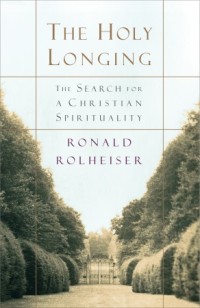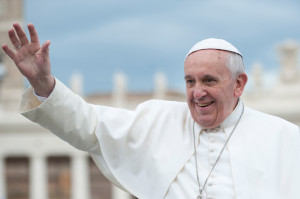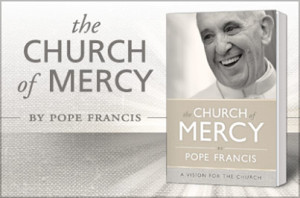A Resource for New Catholics: Waking up Catholic by Chad Torgerson
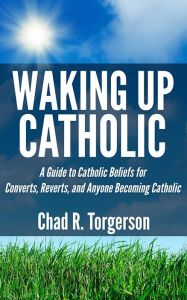 When I decided to become Catholic, I was ravenous for information about the Church! Sad to say, I had a fairly hard time finding something that was simple enough, without jargon, wasn’t written in 1960 and clearly explained the basics of the Catholic faith.
When I decided to become Catholic, I was ravenous for information about the Church! Sad to say, I had a fairly hard time finding something that was simple enough, without jargon, wasn’t written in 1960 and clearly explained the basics of the Catholic faith.
I finally stumbled upon The Catholicism Answer Book: The 300 Most Frequently Asked Questions, which laid down enough of the basics that I was able to move on to more advanced reading. I wish I’d had this book: Waking up Catholic by Chad Torgerson.
Chad is a convert from the Protestant faith and does a lovely job hitting all the basics of Catholicism. While it’s useful for any Catholic RCIA candidate or Catholic newbie, I think it’s especially helpful for those converting from a Protestant denomination. There are many common objections that Protestants tend to have of Catholicism, such as the veneration of Mary, the veneration of the saints, the real presence of Christ in the Eucharist, tradition versus Bible-only, and the need for confession, or reconciliation.
Torgerson explains how he once held all of these very objections to the Catholic faith, in fact arguing them quiet often 🙂 (it’s amazing how God coverts us!), and explains how he overcame them in a way that I think will make sense to many Protestants. I find that many of the objections they hold are simply a lack of understanding. If we can just get them to listen to WHY Catholics believe what they do and practice what they do, I think many would come to see that Catholicism is the fullest revelation of the Christian faith. I know I have figured that out in spades over the last few years!
While I think he missed some key reasons for confession and why we venerate Mary, he does hit the basics, which is a great starting point for further study. I would encourage you to learn more about reconciliation by reading the book 7 Secrets of Confession by Vinny Flynn and to especially learn all you can about Mary (you will be amazed!) by reading a book like Meet Your Mother by Mark Miravalle. I am still learning so much about Mary and am continually amazed at the unique role she played in assisting our Lord with our salvation. Both of these books are very easy to read and give a well-rounded, in-depth look at these facets of the faith.
If your RCIA program has not provided you with a good resource for learning the basics of the faith outside of class (I know ours gave us print-outs that were very dated and not terribly helpful), this is an excellent option to help you get started on the road to Catholicism. If there’s a teaching you disagree with (and surely there will be one or two), please take the time to read further about it. I found that when I bothered to delve deeply into any topic I didn’t understand, I eventually saw the truth. Becoming Catholic is no easy feat… it takes time and dedication!
What resources did you find most helpful in the RCIA process? Any great books you recommend for Catholic newbies? Please share!
Editor’s Note: This book was provided to me free of charge in exchange for a fair review.

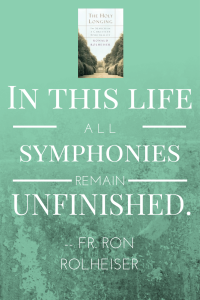 I chose this book because the author, Fr. Ron Rolheiser, has captured my attention with his newspaper columns which show up periodically in my local diocese paper and from his bi-weekly emails. He is extremely intelligent in his approach to Catholicism, yet somehow also really cuts to the heart of the matter in a plainspoken way in just a few short words. Provided for free by the Blogging for Books program, I grabbed this one the instant I saw it to hear this author expound in more detail.
I chose this book because the author, Fr. Ron Rolheiser, has captured my attention with his newspaper columns which show up periodically in my local diocese paper and from his bi-weekly emails. He is extremely intelligent in his approach to Catholicism, yet somehow also really cuts to the heart of the matter in a plainspoken way in just a few short words. Provided for free by the Blogging for Books program, I grabbed this one the instant I saw it to hear this author expound in more detail.